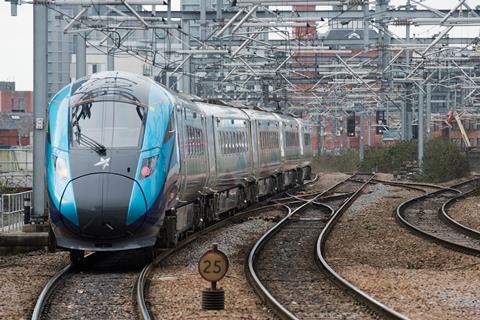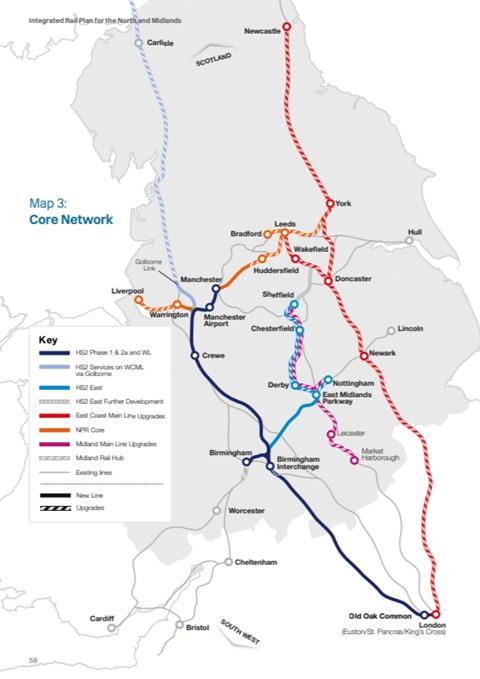
UK: The government has formally responded to recommendations made by the House of Commons Transport Select Committee in its 2022 report into the £96bn Integrated Rail Plan for the North & Midlands, which had been announced in 2021.
In its response published on July 13, the government said a business case for the proposed Northern Powerhouse Rail network is expected to be published later this year, with updated analysis on a range of different network options.

The government said it did not accept the committee’s premise that IRP underserves the north of England and brings only modest benefits, and therefore it does not accept the recommendation that the overall evidence base needs to be reconsidered. It has commissioned updated analysis to compare the core network committed to in IRP with relevant alternatives.
On July 17 the government published the terms of reference for a study on how best to take High Speed 2 services to Leeds, and it accepts the recommendation to consider the redevelopment of Leeds station.
The government will reconsider the case for a new St James’s Market station in Bradford.
The government says it has not seen evidence that an underground through station in Manchester, which local stakeholders have repeatedly called for, would unlock enough land value to justify the increased cost.
The government says it remains committed to looking at alternatives to the Golborne Link between HS2 and the West Coast Main Line north of Crewe, and the route will be safeguarded.
The Transport Committee said its concern that a ‘fixation’ on journey time reductions was overshadowing issues of track capacity was not addressed directly in the government’s response.
MPs and industry respond
Commenting on the government’s response, Committee Chair Iain Stewart MP said ’the main arguments of the Committee’s report have been vindicated as the government has accepted that more work is needed on key elements of the Integrated Rail Plan — its cost:benefit ratios, contributions to levelling up, and projections on shortening journey times. We welcome those elements of the response, even though we regret this work was not completed before the major strategic decisions in the IRP were taken.’
He added that ‘it is vital that the way this £96bn investment is used is based on the most robust evidence. What we will be looking for now is a willingness for the government to change course if that is what this renewed evidence base suggests.’
RIA North gave a ‘qualified welcome’ to the government’s response. Chair Justin Moss said ‘it is clearly disappointing that it has taken so long for this thinking to be shared’ and said ’we respectfully urge the government to be more open with its communications on rail schemes in the future, providing more visibility on the progress of these important investments’.



